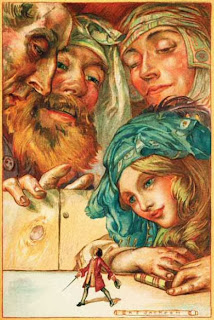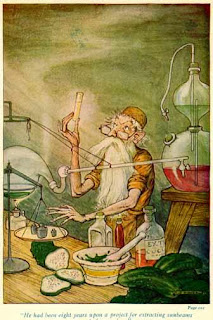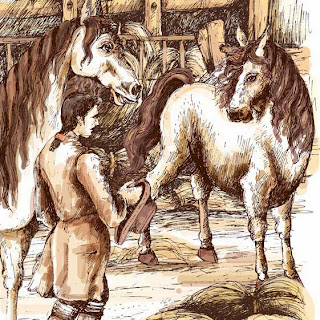Francis Bacon – A Moralist
Bacon
is not a true moralist. His morality is a saleable morality. He is a
moralist-cum-worldly wise man. Bacon appears as a moralist in his
essays, for he preaches high moral principles and lays down valuable
guidelines for human conduct. Some of his essays show him as a true
lover and preacher of high ethical codes and conducts. For instance, in
“Of Envy”, he puts:
A man that hath no virtue in himself, ever envieth virtue in others.
Then, in his essay “Of Goodness and Goodness of Nature” he says:
But in charity there is no excess; neither can angel or man come in danger by it.
Again, he appears to be a lover of justice in his essay “Of Judicature”:
The principal duty of a judge is to suppress force and fraud.
 In
spite of all given examples, one cannot deny the fact that Bacon was a
“Man of Renaissance”. He had a deep insight in human nature. He knew
that man is naturally more prone to evil than good. He was a clear-eyed
realist who saw the weakness in human nature and drawbacks of human
conduct and also knew that man is not capable of acting according to
noble set of ‘ideals’. Though Bacon’s morality was greater than that of
average man’s, yet it was not of the highest order. The
matter of good and right was important for him but not if it proved too
costly in worldly terms. On one hand, he preached high moral principles
and on the other hand, he also expressed a mean capacity by
compromising upon those morals for the sake of worldly success. For this
reason, William Blake, a spiritual poet says about his essays:
In
spite of all given examples, one cannot deny the fact that Bacon was a
“Man of Renaissance”. He had a deep insight in human nature. He knew
that man is naturally more prone to evil than good. He was a clear-eyed
realist who saw the weakness in human nature and drawbacks of human
conduct and also knew that man is not capable of acting according to
noble set of ‘ideals’. Though Bacon’s morality was greater than that of
average man’s, yet it was not of the highest order. The
matter of good and right was important for him but not if it proved too
costly in worldly terms. On one hand, he preached high moral principles
and on the other hand, he also expressed a mean capacity by
compromising upon those morals for the sake of worldly success. For this
reason, William Blake, a spiritual poet says about his essays: Good advice for Satan’s Kingdom.
Blake
considers any utilitarian advice contrary to God’s ways, but Bacon does
not bother for that. He considers this world more important and
striving after the success in this world is equally important. Bacon
discusses man as he “appears” and not as he “ought to appear”.
In
his essay “Of Great Places” Bacon certainly shows a high morality when
he condemns or at least dislikes the practice of ‘wrongs’ on part of
high officials.
In place there is license to do good and evil; where of the latter is a curse.
Afterwards he appreciates the power of doing good.
But power to do good, is true and lawful end of aspiring.
But besides these moral approaches, he also supports the idea of adopting certain disloyal means to reach a high position.
It is good to side a man’s self whilst he is in the rising and to balance himself when he is placed.
Thus,
like a moralist, Bacon preaches the noble dimensions of great place,
but with this statement his purely utilitarian approach also comes forth
with all its power.
In the essay “Of Truth” he appears to be a ‘genuine’ admirer of truth and seems to install the love of truth in his readers.
It is heaven upon earth, to have man’s mind move in charity, rest in providence and turn upon the poles of truth.
But he also points out that
Falsehood is like an ‘alloy’ in gold and silver, which makes the metal work better even though it reduces, the value of the metal.
He says:
A mixture of a lie doth ever add pleasure.
By putting this he has diluted all the effect of his own words said in the praise of the truth.
One
can find the same strange mixture of high ethics and utilitarianism in
the essay “Of Revenge”. In this essay Bacon condemns revenge by saying:
Revenge is a kind of wild justice.
And
One who studieth revenge, keeps his own wounds green.
He
expressed that there is no place of revenge in high society and it is a
high quality to forgive an enemy. Hereafter, Bacon spoils the effects
by putting that in some cases man is justified in taking revenge, if the
avenger can save his skin from the eyes of the law. He says:
But then let a man take heed the revenge be such as there is now law to punish; else a man’s enemy is still forehand.
In
his essay “Of Suitors” Bacon says that a man should refuse to undertake
a suit if it is by giving a false hope to the petitioner and that one
should not demand undue reward for his services. Those who employ
crooked methods to win suits are the worst offenders of society. But he
also says that if a patron wants to favour the undeserving party, he
should bring both the parties to a compromise for this would be less
dangerous for him. So, to Bacon, morality and ethical codes seem
inferior to worldly considerations.
“Of Simulation and Dissimilation” is another example of the strange mixture of morality and prudence.
The best position and temperature is; to have openness in fame and opinion; secrecy in habits; dissimulation in seasonal use; and power to feign, if there be no remedy.
Bacon’s
morality has also been described as a cynical kind of wisdom. This
impression is confirmed by even those essays which deal with strong
private relations between men. “Of Friendship”, “Of Parents and
Children”, “Of Marriage and Single life” and “Of Love”, all depict a
certain kind of utilitarianism and worldly benefit. Here Bacon expresses
a definite failure of emotions, for he takes the pure matters of heart
in terms of their uses and abuses.
In
short, though Bacon’s essays portray morality and high ethical
standards, yet he does not appear as an ideal moralist and these are but
the “flashes of morality”. He is not a true moralist.









